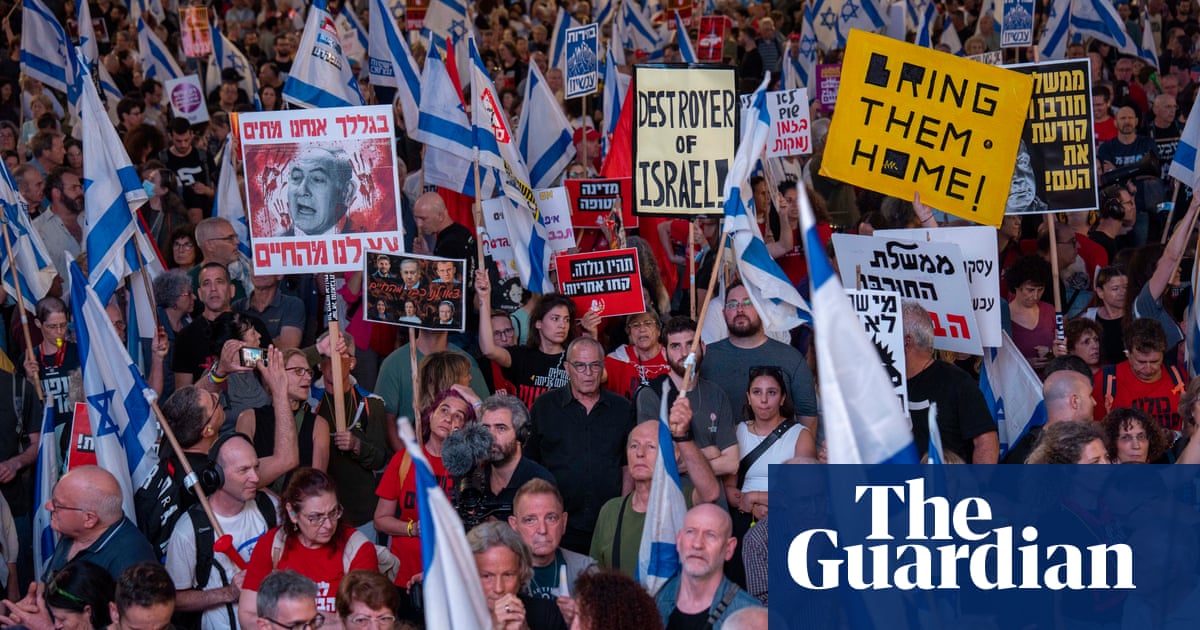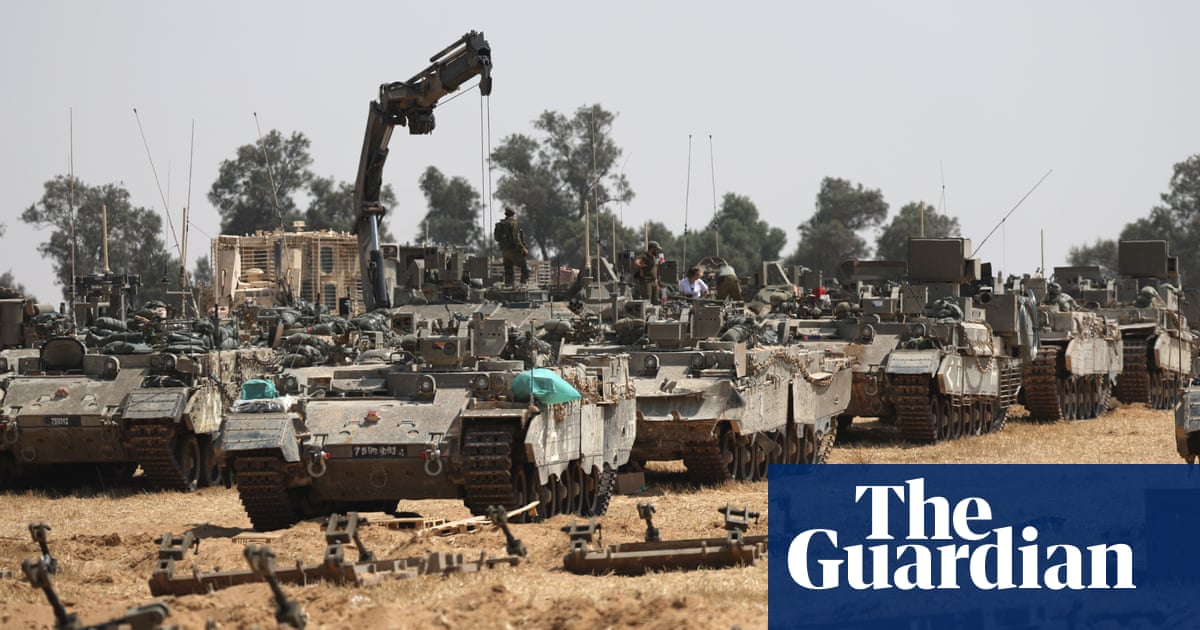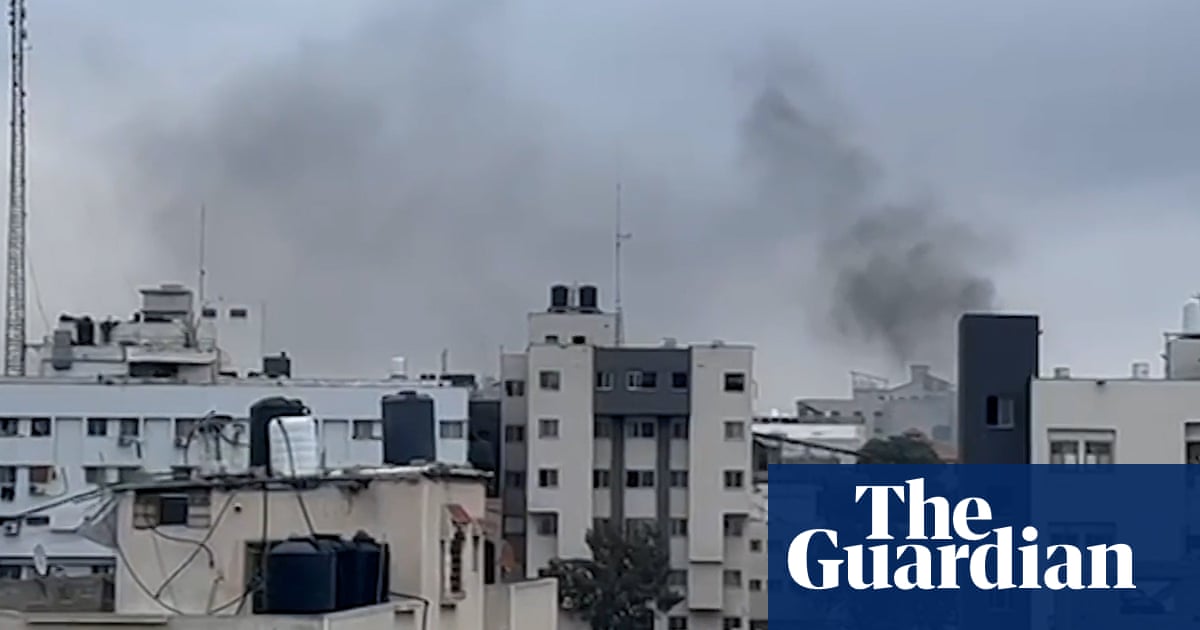
Senior Israeli officials ramped up pressure on Hamas on Sunday, saying Israel would refuse any permanent end to hostilities and threatening a new onslaught “in the very near future” if the militant organisation did not accept recently proposed terms for a ceasefire.
In a televised address, Benjamin Netanyahu once more rejected Hamas’s demands for a definitive end to the war in Gaza, saying that any permanent ceasefire would allow the group to remain in power and pose a continuing threat to Israel.
Speaking a day after thousands of people again rallied in Tel Aviv demanding a deal to free the remaining Israeli captives, Netanyahu also said that his government had “been working around the clock to formulate an agreement that would return our hostages”.
Hours later, Israel’s defence minister, Yoav Gallant, said Hamas did not appear to be serious about reaching a ceasefire deal. If a deal is not reached, he added, this would lead Israel to launch an often-threatened offensive into Rafah, a reported Hamas stronghold where about a million people displaced from elsewhere in Gaza have sought shelter, “in the very near future”.
The statements by Netanyahu and Gallant may dash recent hopes that Hamas and Israel are close to a deal to bring about an initial 40-day pause to hostilities and the release of dozens of hostages.
“Hamas remains entrenched in its extreme positions, first among them the demand to remove all our forces from the Gaza Strip, end the war, and leave Hamas in power,” Netanyahu said. “Israel cannot accept that … Hamas would be able to achieve its promise of carrying out again and again and again its massacres, rapes and kidnapping.”
A Hamas delegation which had arrived in Cairo on Saturday announced late on Sunday it was leaving to consult with its leadership. There has been no sign yet of a definitive response from the group to new terms proposed by mediators and accepted by Israel last week. Israel has yet to send a delegation to Cairo.
In a move unlikely to help the talks, Netanyahu’s cabinet decided on Sunday to shut down Al Jazeera’s operations in Israel for as long as the war in Gaza continues, claiming the Qatari television network threatens national security.
Al Jazeera rejected the accusation as a “dangerous and ridiculous lie” that put its journalists at risk.
The network has been critical of Israel’s military operation in Gaza, from where it has reported around the clock throughout the war. It is funded by the Qatari government, which until recently played a key role in ceasefire talks.
The war was triggered by surprise attacks launched by Hamas on southern Israel in October in which 1,200 people, mostly civilians, were killed and about 250 hostages were taken.
Israel’s ensuing military offensive has devastated much of Gaza, caused a humanitarian crisis and killed more than 34,600 Palestinians, mostly women and children. Israel has said that Hamas uses civilians as human shields, a charge the organisation has rejected.
Witnesses on Sunday reported shelling and gunfire in the vicinity of Gaza City, helicopter fire in central and southern Gaza, and a missile strike on a house in the Rafah area. The UN has reported continuing bombardment every day for many weeks.
Cindy McCain, the head of the World Food Programme, said on Saturday there was “full-blown famine” in northern Gaza, and appealed for an end to fighting.
Both Israel and Hamas portray the other as intransigeant but both are under pressure to agree a ceasefire.
Ismail Haniyeh, Hamas’s most senior political leader, said on Sunday the militant group was keen on reaching a comprehensive ceasefire that will end Israeli “aggression”, guarantee Israel’s withdrawal from Gaza and achieve a serious hostage-swap deal.
In his statement Haniyeh blamed Netanyahu for “sabotaging the efforts made through the mediators and various parties”.
Netanyahu has repeatedly vowed to invade Rafah regardless of whether a truce is reached and despite concerns from the US other countries and aid groups.
About a million displaced Palestinians have fled to Rafah, which is also a major logistic hub for humanitarian assistance.
Antony Blinken, the US secretary of state, said on Friday that without a credible plan to protect civilians in the city, Washington could not support “a major military operation going into Rafah because the damage it would do is beyond what’s acceptable”.
Tedros Adhanom Ghebreyesus, the chief of the World Health Organization, on Friday warned that “a full-scale military operation in Rafah … could lead to a bloodbath”.
Talks between Israel and Hamas restarted in late December, just weeks after a brief ceasefire allowed 105 hostages to be exchanged for 240 Palestinian prisoners in Israeli jails. Successive rounds of negotiations have made incremental progress, though the most recent proposed deal remains very close to that discussed many months ago.
Negotiators have proposed a series of phased pauses in fighting, with further hostage releases and the withdrawal of Israeli forces from much or all of Gaza. Israel has resisted a Hamas demand for permission for civilians to return to the devastated north of the territory for fear this would allow the organisation to re-establish control there.
Aid officials said the flow of aid into Gaza remains inadequate, despite recent improvement. On Sunday the Israeli military said it had been forced to close the recently reopened Kerem Shalom crossing at the southern end of Gaza to aid convoys after it came under mortar fire. Three Israeli soldiers were killed and three critically wounded, officials said on Sunday night.
Critics in Israel have accused Netanyahu of seeking to prolong the war. The coalition he leads includes religious and ultra-nationalist parties which fiercely oppose any end to hostilities. A deal might lead these allies to quit government, threatening Netanyahu’s grip on power.
On Sunday the Hostages and Missing Families Forum appealed directly to Netanyahu in a statement, telling him to “disregard all political pressure”.
“History will not forgive you if you miss this opportunity”, the statement said. About 128 hostages remain in Gaza, though between 30 and 50 are thought to have died in captivity.
Thousands of Israelis again rallied in Tel Aviv late on Saturday demanding a deal to free the remaining captives. They waved Israeli flags and placardswith messages reading “Bring them Home!”
Michael Levy, whose brother Or is among the hostages, said he tries not to think too much about a potential truce deal “until this is real”.
“We hear those rumours about an upcoming deal pretty much since October 8,” he said.
In what appeared to be a bid to defuse some of the criticism, Netanyahu addressed some comments on Sunday to those calling for the release of the hostages to be a priority.
“Totally contrary to [media] reports, in order to achieve this goal, we have given the negotiating team a very broad mandate to move forward on the release. We did so out of a deep commitment to the hostages, and in order to end the terrible suffering of the families,” he said.
The war in Gaza has also triggered worsening violence in the occupied West Bank. Israel’s army said on Saturday its troops killed five Palestinian “terrorists” during a 12-hour operation near Tulkarm.
Hamas confirmed that four of the men killed during the raid in Deir al-Ghusun village were from its al-Qassam armed wing.












